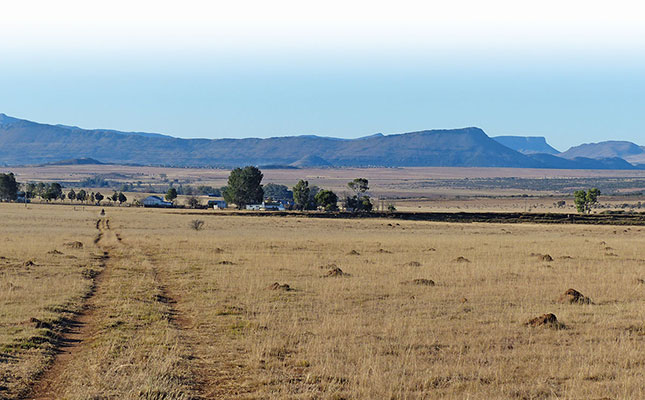
Organised agricultural bodies are expecting President Cyril Ramaphosa to address the various aspects of land reform in his 2019 State of the Nation Address (SONA) on Thursday.
However, there seems to be little consensus on what the president should say on this sensitive issue.
Dr Vuyo Mahlati, president of the African Farmers’ Association of South Africa (AFASA), said that after 25 years of democracy, she was keen to see “how the president and government plan to accelerate and focus attention on fundamentally changing the situation of black farmers and restructure the industry for the benefit of all”.
READ Homeland consolidation: a forerunner of land reform?
AFASA wanted the president to address issues such as the provision of funding for drought relief and production support for black farmers, the need for government to develop and effectively implement a coordinated planting support plan for these farmers, and amending the Marketing of Agricultural Products Act “to address the unintended consequences of deregulation”.
Ronda Naidu, spokesperson for the South African Farmers Development Association (SAFDA), said SAFDA hoped that the president would unpack topics related to agrarian reform, such as the provision of financial assistance and access to capital for small-scale and land reform farmers, as well as the urgent need for job creation initiatives in rural areas.
READ Cooperatives can unlock agri-sector potential
Naidu said small-scale and land reform sugar cane farmers were particularly struggling with the “extremely detrimental” effects of the Health Promotion Levy, or ‘sugar tax’, that was implemented last year on sugar-sweetened beverages. She added that some of these farmers had already gone out of business as a result.
“This means that support is required from government to mitigate the adverse effects through, for example, creating a conducive environment for [electricity] cogeneration, bio-based products, and biofuel.
Small-scale growers going out of production equates to loss of household income, and will require support from government. At SAFDA we believe that there is a need to break this cycle through sustainable and innovative land reform solutions,” Naidu said.
READ It’s time for smallholder farmers to enter value chains
Chris van Zyl, assistant general manager at TAU SA, said the organisation expected Ramaphosa’s address to have land expropriation without compensation as a core focus.
He added that with the general election looming, TAU SA anticipated that the president would use the 2019 SONA as a platform to express the ANC’s political position and therefore, “commercial agriculture should not expect to be treated with kid gloves”.
“While it is unclear as to what exactly will be targeted for expropriation, its economic impact will be felt far and wide. TAU SA has no doubt that the country’s international status will be detrimentally affected. Between the drought and the threat of expropriation, agricultural property prices have already suffered,” he said.
READ SONA 2018, Agri leaders speak out
Omri van Zyl, executive director of Agri SA, said the organisation hoped that the president would focus on getting all government departments to work together to provide South African agriculture with the support and enabling environment it needed to achieve transformation, job creation, food security, economic growth, and social stability.
“Support for agriculture will quickly benefit all other sectors of the economy. In this election year, let the message from government be clear that broad support to sustainable and dynamic agriculture will be a top priority,” he said.
READ Land reform failure: a strategic plot?
Agri SA also hoped to hear that Ramaphosa would instruct the Department of Public Works to “thoroughly” define the clauses allowing for land expropriation without compensation, expedite drought relief for farmers, and prioritise the Department of Water and Sanitation’s capacity to effectively implement water legislation and policy.
Other aspects Agri SA wanted addressed was the proper implementation and financing of the South African Police Service’s Rural Safety Strategy, and the establishment and proper financing of an Agricultural Development Fund targeted at agrarian reform.
Agri SA also hoped that more attention would be given to the practicalities and impact of the National Minimum Wage Act.
Join the Farmer’s Weekly News WhatsApp Group for daily news updates.











